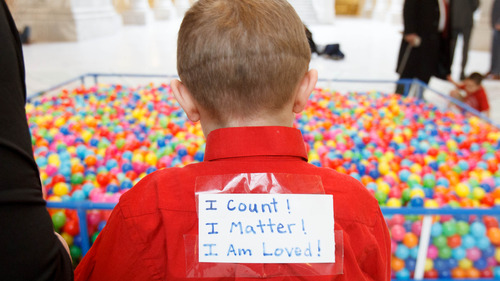This is an archived article that was published on sltrib.com in 2013, and information in the article may be outdated. It is provided only for personal research purposes and may not be reprinted.
A bill that would mandate insurance coverage for autism therapy in Utah could be debated by the Senate within days, but whether a compromise can be struck to pass HB55 remains in question.
Sen. Brian Shiozawa, R-Çottonwood Heights — a physician and past president of the Utah Medical Association — is sponsoring SB55, designed to deliver insurance coverage for thousands of Utah's 18,532 children who have been diagnosed with autism. Children age nine and younger could receive up to $50,000 in annual coverage, while youth ages nine to 17 would qualify for $25,000 per year. Insurers oppose a mandate.
One in 88 children nationwide are estimated to suffer from the complex brain disorder, while that figure jumps to one in 47 in Utah.
Utah has an insufficient supply of therapists trained and certified to provide applied behavior analysis, (ABA) considered an effective treatment. In response to criticism of the bill's narrow language, Shiozawa has broadened it to allow state-licensed mental health providers to administer the treatment.
That should help, Shiozawa said in a recent email. "However, until we approve a mandate, few additional (ABA) therapists will train since there will be limited reimbursement," he added.Responding to other concerns raised by lawmakers, Shiozawa said he will consider reducing coverage for youth older than 9 and would agree to add language to end coverage if treatment "truly appears to not be working." Treatments yield the greatest success during a child's early years, he noted.
Partially to appease advocates who wanted a mandate last year, lawmakers approved three two-year pilot programs to treat a maximum of 315 children between the ages of 2 and 6. Sen. Todd Weiler, R-Woods Cross, cautiously voted to pass SB55 out of committee last week, weary of complaints about the pilots.
He favors extending $50,000 in coverage to age 12, and cutting funding to $10,000 or $15,000 for older teens.
"The mandates have the potential to hurt small businesses," Weiler said.
He also suggests funding three years of treatment for any child and "then you're on your own."
"My goal is to mainstream these kids so they can have careers and go to college," Weiler said by phone Monday.
In the Senate, "People are either for it or against it," he said. "Not many are sitting on the fence."
Covering state and public education employees and costs to the Children's Health Insurance Program (CHIP) would require an estimated $1.3 million in 2014 and $1.85 million in 2015.
To date, 32 states require insurance coverage for autism treatment, causing premium costs to rise an average of 31 cents per member per month, according to data gathered by Autism Speaks, a national advocacy group. A similar bill called "Clay's Law" passed Utah's Senate in 2009 but died in the House.
Layton resident Mirella Petersen, who leads the Utah Autism Coalition, wants some funding preserved for autistic teens. She cites the experience of a high-functioning teen who needed a little focused instruction on proper behavior as a fast-food franchise employee.
"Treatment for older autistic children works," Petersen said. "It doesn't have to be so intense as with young children."
She is the mother of two 6-year-old twins, one of them diagnosed with autism in early 2011. With treatment, he now reads at a second grade level, and attends a regular mainstream classroom, she said.
"Many people with autism are absolutely brilliant. My son blows me away with how smart he is," Petersen said.
She said her son needs help in other ways, such as socialization and learning appropriate behavior. Lack of these skills "could prevent him from being employable, from being independent, from being a taxpayer," she said.
Twitter: @catmck





